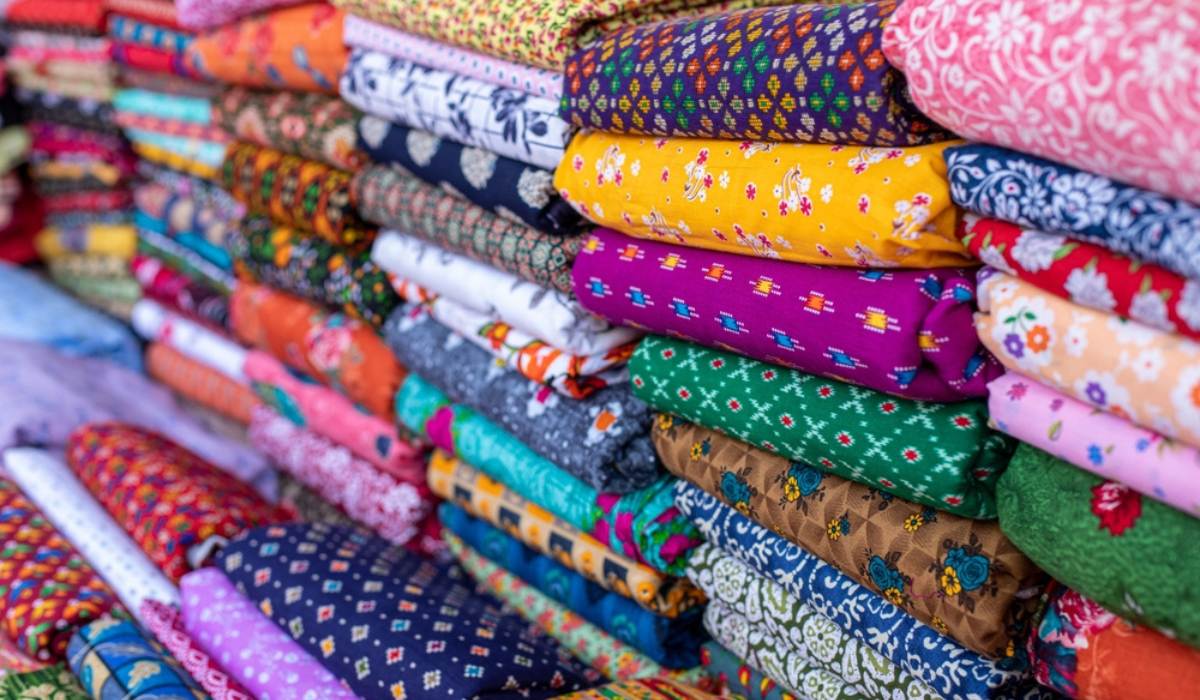How to Source High-Quality Cotton Fabric Wholesale in India
Cotton fabric of high quality can be transformed into any line of products in the creation of top-quality products, home furnishings or even artisanal craft. For companies seeking reliable suppliers of premium cotton fabric at wholesale prices is a huge challenge. However, it’s also an important step in developing a reliable brand. India is among the top producers of cotton and exporters worldwide with unbeatable quantity and huge production capacity. If you’re a new brand or a seasoned manufacturer this guide will show you how to purchase wholesale cotton fabric in India and covers every step from quality inspections to logistics.
Why Quality Cotton Matters for Your Business
When consumers purchase cotton-based products that are soft, durable, and breathability are their top concerns. Quality cotton can affect the way your products feel and last for, as well as how long they last, and how your customers feel about your brand. Making batches of cotton fabric wholesale that is of poor quality results in more unhappy customers and higher returns. Buying better quality cotton in the beginning helps create the basis for long-term trust in the brand and reduces costs later on.
Understanding Cotton Quality
Before you begin your search for suppliers be aware of what differentiates top-quality cotton from other brands.
Important Factors That Define the Quality of Cotton
- Fiber Length
Also known as “staple,” this determines the strength and softness in the yarn. The long-staple of cotton (such as Egyptian as well as Pima) creates smoother strong yarns. Mixed staple cottons that are short-staple or short-staple tend to be rougher and are more prone to pill.
- Fiber Strength
The stronger cotton fibers produce fabric that is resistant to tears and stretching. This is crucial for products that have to stand up to the rigors of daily usage.
- Fineness
Finer cotton fibers result in more soft, smoother fabrics. The fineness of the fabric is directly linked to comfort and overall feeling.
- Color and Cleanliness
A uniform color and absence of visible impurities is a sign of a good process. Natural shades of cream or white are preferred, as they are able to absorb dyes evenly.
- Ginning and Spinning Quality
The way that cotton is separated (ginned) or spun can affect the appearance, texture, and even the waste generated during production.
Certifications and Standards
Find internationally recognized certifications, such as:
- OEKO-TEX Standard 100
- Global Organic Textile Standard (GOTS)
- Better Cotton Initiative (BCI)
Certifications can ensure that cotton is in compliance with strict quality and environmental requirements.
Finding Reliable Suppliers
Cotton fabric is available in a variety of variations, and so do the suppliers. The ideal supplier will meet your particular price, quality and volume needs.
Where to Start Your Search
- Textile Trade Shows and Expos
Events like India International Textile Machinery Exhibitions (ITME), Bharat Tex as well as India ITME Africa & Middle East are great places to network. It is possible to see samples on display as well as compare the quality and establish relationships prior to signing any contract.
- Online Supplier Marketplaces
The most trusted B2B platforms are IndiaMART, Fabriclore, Fibre2Fashion, and TradeIndia. Concentrate on reputable and highly-rated suppliers.
- Industry Forums and Trade Associations
Groups like those of the Cotton Association of India and Confederation of Indian Textile Industry supply directories for suppliers as well as contact information for industry.
- Referrals
Industry peers’ recommendations can help you avoid the time and effort of trial and trial and.
How to Vet Cotton Fabric Suppliers
- Request Samples
Always request large quantities of samples and not only swatches. This can help determine the consistency of larger batches as they can differ from smaller cuts.
- Check Business Credentials
Check GST number, export licenses as well as the membership of recognized trade associations.
- Review Quality Certifications
Make sure you have a credible endorsement from third-party organizations, not only printed logos and invoices.
- Assess Responsiveness and Transparency
The suppliers who are prompt and transparent about their procedures generally have better security.
- Ask for References
Directly speak to former clients or current customers regarding the reliability of the provider and its reliability.
Navigating Indian Cotton Markets
India has a huge and diverse landscape of textiles. Understanding the most important hubs will make your life easier and allow you to focus on the most relevant areas.
Top Cotton Fabric Markets in India
- Ahmedabad, Gujarat
Often referred to as “Manchester of the East,”” the city is home to large textile mills and fabric makers.
- Mumbai, Maharashtra
A hub for exports and finance with simple shipping links and an extensive supplier network.
- Tiruppur, Tamil Nadu
The name is knitwear. Tiruppur is a great place to source interlocks, cotton knits, and other stretchy fabric.
- Erode, Tamil Nadu
The company specializes in knitted and woven cotton. Erode additionally has solid links to dyeing facilities.
- Surat, Gujarat
Historically, synthetics are the most well-known of all but also an increasing base for exports of cotton blends.
Negotiating Prices and Terms
Wholesale cotton purchases may require long calls and a lot of spreadsheets. An easy, clear method will allow you to make the most effective purchase.
Setting Yourself Up for Success
- Know Your Specs
Make your demands clear (GSM and yarn count types of weaves and color standard).
- Benchmark Prices
Collect quotes from at least three suppliers to determine the current market prices.
- Ask for Breakdowns
Request a detailed price list that includes dyeing costs transportation, taxes, and dyeing.
- Negotiate Order Volumes
Discounts on volume are common. However, be sure that the discount doesn’t cost you in terms of high-end products.
- Discuss Payment Terms
A lot of suppliers require a portion of the payment in advance. Confirm in writing the milestones and what each payment will cover.
- Clarify Delivery Timelines and Penalties
Make sure you have written agreements that include specific lead times including penalties if insufficient or late shipment.
Quality Control
Don’t do this step, and quality issues could reduce your profit margins. Be involved in every step to maintain high standards.
Best Practices for Quality Assurance
- Third-Party Inspections
Employ reputable agencies in India to examine shipments prior to when leaving the manufacturing facility.
- Pre-Shipment Samples
Ask for random bulk samples again, even after approving initial swatches.
- On-Site Visits
If you can, go to factories or hire an agent locally to conduct checks.
- Check for Compliance
Labeling and packing correspond to your import and legal requirements.
- Spot Testing
Perform basic tests for shrinkage, colorfastness, and strength prior to approving the final batch of payment.
Logistics and Shipping
Transferring cotton fabrics across Indian mills and warehouses requires some planning and careful coordination.
Managing the Import Process
- Choose Reliable Freight Partners
Collaborate with forwarders that are knowledgeable about international trade and textile shipping regulations.
- Keep Documents Prepared
The required paperwork comprises invoices, packing schedules, phytosanitary certifications as well as the bills of lading.
- Stay on Top of Customs
Contact customs brokers before on, as unexpected charges could cause a loss of savings.
- Protect Shipments
A properly designed packaging system will prevent dust, water or other damage from transport.
- Track Regularly
Utilize online tracking tools to keep in contact with your freight company.
Key Takeaways and Next Steps
Finding high-quality cotton fabric wholesale in India can lead to higher-quality products and better margins. It requires meticulous study, supplier vetting and strict quality control and solid logistics. Make sure you know your requirements, make sure you only work with trustworthy partners, and maintain records throughout the process.
A commitment to quality from the beginning will save you a lot of headaches and expense later. By investing in relationships that are strong and clear contracts will allow you to build an efficient supply chain that helps keep your business expanding.
Sustainable fabrics are environmentally conscious textiles developed to limit ecological damage, ensure ethical sourcing, and support biodegradability. Natural fabrics such as organic cotton fabric and linen fabric stand out—organic cotton avoids toxic chemicals and uses less water, while linen, derived from flax, grows with little input and decomposes naturally. Additional eco-friendly options like hemp, TENCEL™, and Cupro (Bemberg) are produced from renewable raw materials through sustainable, often closed-loop, manufacturing methods that further reduce environmental impact.
Find the perfect materials for your upcoming collection with Fabriclore’s diverse range of custom printed, ready mill-dyed, and yarn-dyed fabrics. Reach out to us at hello@fabriclore.com for personalized support or any inquiries. We’re here to make your fabric sourcing seamless, authentic, and affordable.




